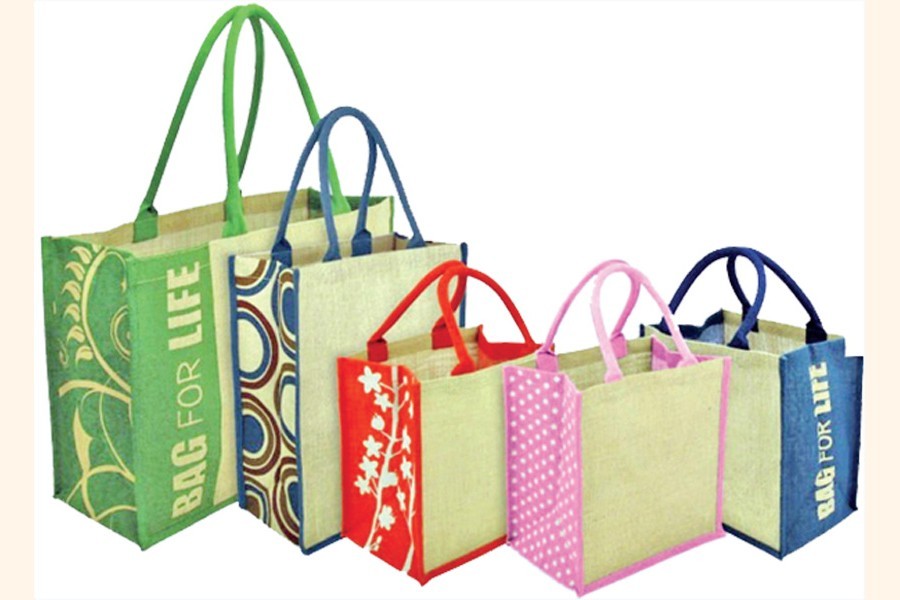Sharp fall in jute goods export to India
Jute ministry pushes for steps on tariff barrier

Published :
Updated :

The Ministry of Textiles and Jute has sought necessary government steps to settle the issue of anti-dumping duty imposed by India on Bangladeshi jute goods, officials said.
In a letter, Textiles and Jute Minister Golam Dastagir Gazi has recently requested Commerce Minister Tipu Munshi to approach the Advisory Centre on WTO Law (ACWL) for a solution to the issue after scrutinising required documents, they added.
The ACWL, a Geneva-based independent body, provides free legal advice and training on WTO law and also assists the developing and least developed countries in settling trade disputes between WTO member states at discounted rates.
Earlier, the Bangladesh Tariff Commission (BTC) suggested seeking legal advice from the ACWL in this regard.
"The Bangladesh Tariff Commission has found that India has violated WTO rules relating to the anti-dumping measures," a BTC official said at that time. "So, Bangladesh may move the WTO's Dispute Settlement Body (DSB) for a remedy."
But before moving the DSB and requesting India for consultations on the issue, Bangladesh needs to make its case strongly substantiated, he added.
If Bangladesh decides to request consultations with India after getting such an advice from the ACWL, it will charge a fee of US$ 5,800 only for preparing the formal request paper.
To seek legal advice, Bangladesh will require sending all the relevant documents to the ACWL through the Bangladesh Mission in Geneva, according to the BTC.
In his letter, the jute minister said the jute sector is now facing various challenges due to rampant use of artificial fibres and cheap synthetic products. The anti-dumping duty imposed by India on Bangladeshi jute goods is one of the main challenges.
The exports of jute goods by the Bangladesh Jute Mills Corporation (BJMC) have declined significantly over the last three years, he said.
Only 3,998.20 tonnes of jute goods were exported to India this year as against 8,985 tonnes in the previous year, the minister said in the letter.
According to the jute ministry, about 36,435 tonnes of jute goods were exported to India in the fiscal year (FY) 2015-16 before the imposition of the anti-dumping duty.
Back in 2004, Bangladesh sought similar legal advice from the ACWL in the lead acid battery case. It then helped Bangladesh prepare the 'request for consultations' served on India at the WTO.
The ACWL also assigned two lawyers to assist the Bangladeshi team during the consultations with India at that time.
The dispute was settled at the consultation stage and India withdrew the anti-dumping duty it imposed on lead acid battery, manufactured and exported by Rahimafrooz, the BTC said.
A high official of the commerce ministry said: "We are taking necessary steps and preparing documents in this regard for seeking advice from the ACWL soon."
On January 05 in 2017, India's finance ministry imposed the anti-dumping duty for a period of five years on the import of jute products from Bangladesh at rates ranging between US$ 19.30 and US$ 351.72 per tonne amid allegations of dumping of goods like jute yarn, twine, jute sacking bags and hessian fabric.
Bangladesh exports more or less 30 per cent of its exportable jute goods to India, with the Bangladesh Jute Mills Corporation having the largest share. India is the second largest export market for Bangladeshi jute goods.
Presently, a total of 170 jute mills are running under the Bangladesh Jute Mills Association (BJMA).
According to a BTC source, Bangladesh has also been trying to convince the Indian authorities through diplomatic or political channels to withdraw the anti-dumping duty, arguing that such a measure has already hit hard Bangladesh's export earnings.
Before imposing such a duty, the office of the Directorate General of Anti-Dumping and Allied Duties (DGAD) of India carried out an investigation during the period between April 01, 2014 and March 31, 2015 with an analysis, covering a period from 2011-12 to the period of investigation.
The country's jute industry is passing through a tough time due to the anti-dumping duty imposed by the neighbouring country, industry insiders said.
rezamumu@gmail.com


 For all latest news, follow The Financial Express Google News channel.
For all latest news, follow The Financial Express Google News channel.